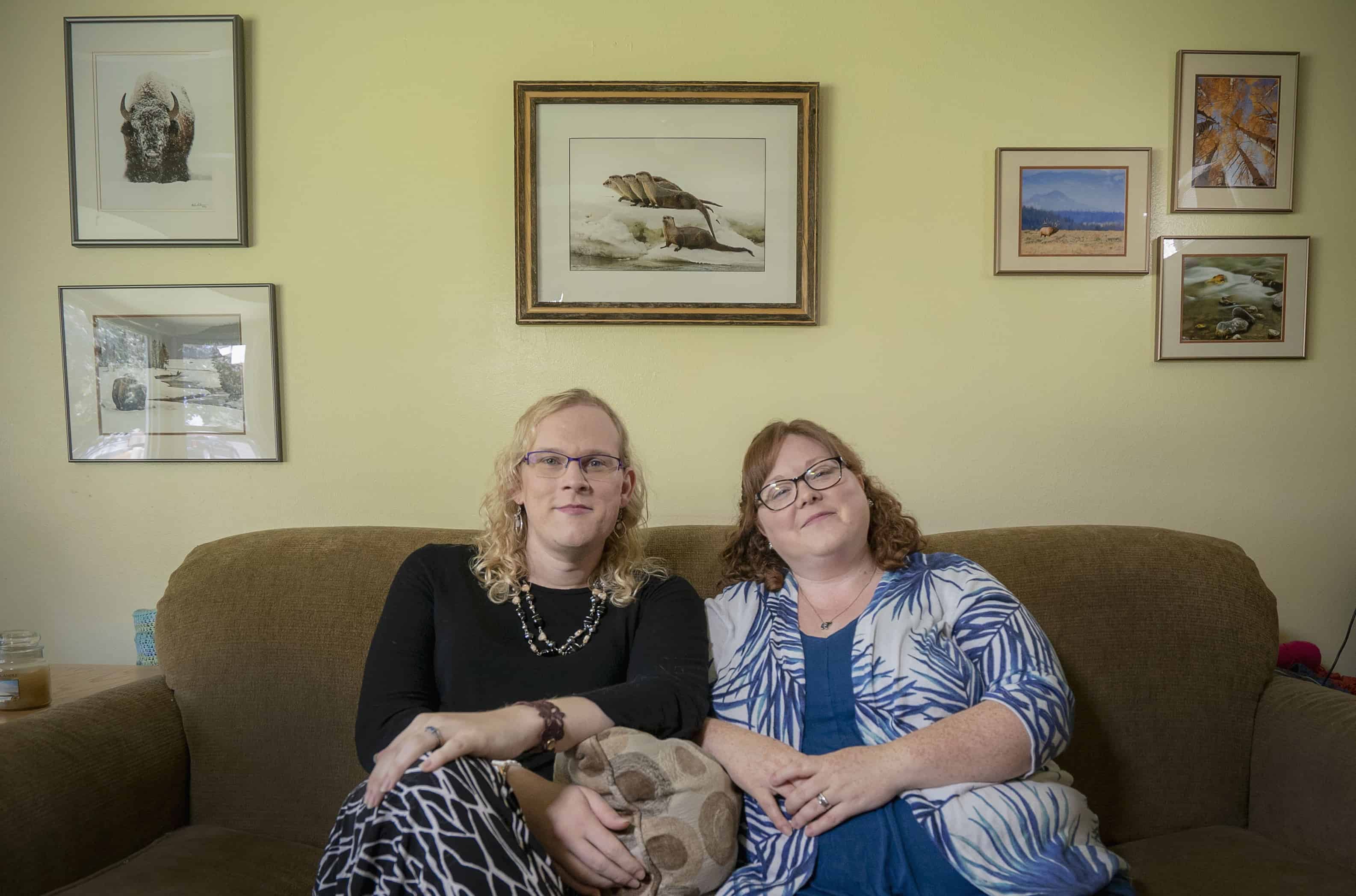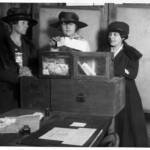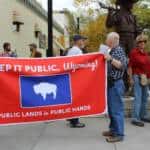PFLAG’s decades-long history of LGBTQ advocacy and support in Wyoming continues
PFLAG may have started on the streets of New York City, but its roots in Wyoming run decades deep.
PFLAG is the oldest and largest organization in the country that unites families and allies with the LGBTQ community. It currently has four active chapters in the Equality State. But there is movement afoot to start PFLAG groups in more Wyoming towns, and to unify and organize their advocacy efforts.
LGBTQ folks and their families and allies currently meet under the PFLAG banner in Casper, Gillette, Jackson, and Laramie. The members support each other, work to educate the public, and advocate for LGBTQ-friendly state and local laws.
In recent years, efforts to pass a statewide law in Wyoming that prohibits discrimination on the basis of sexual orientation and gender identity have failed in the Legislature.
If there’s a path to such a law’s passage in the future, PFLAG will almost certainly be part of it.
From Stonewall to Wyoming
When it was founded in 1972, P.F.L.A.G. was an acronym that stood for “Parents and Friends of Lesbians and Gays.” But the group includes all LGBTQ+ people, and the organization has dropped the acronym, going simply by PFLAG.

Jeanne Manford
Jeanne Manford started PFLAG after her son, a gay activist, was beaten and arrested by police in New York. Manford’s activism launched a grassroots movement calling on parents and allies to step up in support of LGBTQ people. At the time, homosexuality was considered an illness and sodomy a crime, and police regularly targeted gay bars, prompting such actions as the Stonewall Riots.
There are now more than 400 PFLAG chapters consisting of 200,000 members and supporters across the United States. Several chapters have started and disbanded in Wyoming. But the four currently active chapters have committed leaders and members who are determined to make PFLAG a stronger, more helpful presence in the state.
Nondiscrimination work at the local and state levels
Unlike dozens of other states, Wyoming does not have a statewide LGBTQ nondiscrimination law. That means it’s perfectly legal for a boss to fire an employee, a landlord to evict a tenant, and a business owner to refuse service to a customer on the basis of their sexuality or gender identity.
Two towns have passed their own municipal nondiscrimination ordinances: Laramie and Jackson. PFLAG played a role in the process of passing Jackson’s law.
PFLAG Jackson’s coordinator, Mark Houser, co-founded the town’s current chapter in 2004. A previous PFLAG group was active there in the late 1980s and early 1990s but disbanded.

Mark Houser
Houser and his colleagues organized alongside mental health professionals and the religious community to convince Jackson’s town council to pass a nondiscrimination ordinance.
Houser stressed the nonpartisan, inclusive nature of LGBTQ advocacy work in Wyoming. “We feel the more players involved, the better chance of success,” he told Better Wyoming.
This approach, Houser said, will help PFLAG make an impact at the Legislature.
“I really think that PFLAG can play a role in upcoming nondiscrimination legislation on the state level,” he said.
A Wyoming Legislative committee approved a bill to ban discrimination against LGBTQ citizens in the workplace during the 2019 session, but the proposal was never heard by the full chamber.
Politics and community
Not all PFLAG activities are explicitly political. The balance between advocacy, education, and support varies from chapter to chapter.
Like all Wyoming PFLAG chapters, Jackson holds monthly support group meetings. The chapter provides financial support so Gay-Straight Alliance students at Jackson High School can participate in the annual Shepard Symposium on Social Justice at the University of Wyoming.
Jackson PFLAG also provides “Cultural Competency” workshops on issues specific to the gay, lesbian, bisexual, and transgender communities. The group has participated in candidate forums, the National Day of Silence, and offers scholarships to high school seniors who best answer the question: “What have I done to advance social justice in our community?”
“We’re trying to reach out more to other organizations to generate more allies in the community.”
Casper’s PFLAG chapter is just as old and just as active as Jackson’s.
Jackie Warburton started the chapter in the early 1980s. She and many other original Casper members were parents of LGBTQ kids who left Wyoming to live in larger, more accepting communities.
The chapter’s current president, Rob Johnston, moved to Casper from Las Vegas in 2002. He credits PFLAG with helping him find support in his new community as a gay man. The Casper chapter has monthly potluck dinners, co-sponsors the annual Gay Pride Picnic, and participates in National Coming Out Day.
“We’re trying to reach out more to other organizations to generate more allies in the community,” Johnston explained. The chapter will participate in four days of Pride-related activities in Casper the second week of June, culminating in a march and concert by a band he said is “very LGBTQ friendly.”
[vimeo id=”237363099″ width=”600″ height=”350″ autoplay=”no” apiparams=”” class=””][/vimeo] MTV prominently featured PFLAG in the station’s special on Casper Pride
A multi-generational effort
Like Houser and other PFLAG Wyoming members, Johnston was shocked by a recent incident at Cheyenne’s McCormick Junior High, where LGBTQ students and members of the school’s Gay Straight Alliance were targeted with anti-gay messages. The GSA’s coordinator—a teacher substitute—was temporarily fired after she went public about the incident.
“This journey toward social justice is a multi-generational one. So hang in there, be persistent, and keep working toward the end goals.”
“I think the school district in Cheyenne should be ashamed of themselves,” Johnston said. “I think they’re afraid of controversy, but they created more controversy.”
He said he hopes the positive reaction to the students and their advisor will galvanize support for a PFLAG chapter in the capital city.
Lorinda Lindley, president of the Laramie PFLAG, said she is working with supporters in Cheyenne who want to organize a chapter. Johnston said he has a friend who tried to start one there a few years ago, but it never got off the ground.
“You have to be patient,” Lindley said. It only takes two or three “genuinely committed” people to get a chapter running.
Lindley started the PLAG chapter in Laramie a little over a year ago. Likewise, the PFLAG chapter in Gillette is relatively new.
Although Lindley is a PFLAG newcomer, her co-founder of the Laramie chapter, Pastor Kenneth Ingram of St. Paul’s United Church of Christ, has more than 25 years of experience with the organization in Colorado and Texas.
This mix of experience and inexperience is not uncommon among the PFLAG community. In fact, Houser said, it’s a natural part of the equation.
To those who might be interested in starting or joining a Wyoming PFLAG chapter, Houser advised: “This journey toward social justice is a multi-generational one. So hang in there, be persistent, and keep working toward the end goals.”
People who advocate on behalf of LGBTQ rights in Wyoming know that it’s a marathon, not a sprint. Thankfully, decades-old chapters of PFLAG can help provide the knowledge and structure to keep us going.




